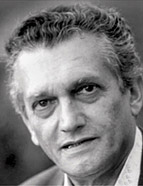

Celso Furtado was born in a small town in the interior of Paraíba called Pombal. He was the son of Maurício de Medeiros Furtado, a lawyer who followed the family tradition and became a magistrate, and Maria Alice Monteiro, heiress to landowners in the region. The couple's eight children had a childhood marked by the hardships of life in the interior. In 1927 he was a young boy and moved with his family to the capital of the state of Paraíba, where he began his studies at the Liceu Paraibano and later at the Ginásio Pernambucano when the family moved to Recife. He arrived in Rio de Janeiro in 1939, where he studied law at the University of Brazil and lived in boarding houses. At the time he worked for Revista da Semana [Weekly Magazine] as an editorial secretary, and at Correio da Manhã [Morning Mail] as a proofreader. In 1943 he became a federal civil servant after passing a competitive examination to become an organisational assistant at the Administrative Department of the Public Service (DASP). In Revista do Serviço Público [Public Service Magazine] he published the first articles that began to show his concern for public administration. After graduating, he went to Italy as an aspiring officer in the Força Expedicionária Brasileira (FEB) [Brazilian Expeditionary Force] in early 1945. The war was already in its final months, and he would return to Brazil in August, but this experience would be the basis for his first book, Contos da Vida Expedicionária– De Nápoles a Paris [Tales of Expeditionary Life- From Naples to Paris], published in 1946. However, this work of fiction did not reveal a vocation. In December 1946, he left for Paris determined not to follow the family tradition of becoming a magistrate: he opted for a doctorate in economics at the University of Paris, which he finished in 1948 at the age of 28. The thesis L'économie coloniale brésilienne [The colonial economy of Brasil] was published for the first time in Brazil in 2001 under the title Economia colonial no Brasil nos séculos XVI e XVII– elementos de história econômica aplicados à análise de problemas econômicos e sociais. [Colonial economy in Brazil in the 16th and 17th centuries – elements of economic history applied to the analysis of economic and social problems]. In 1948 he returned to Brazil and worked as an economist at the Getúlio Vargas Foundation in Rio de Janeiro.
This work is financed by national funds through FCT - Foundation for Science and Technology, I.P, in the scope of the projects UIDB/04311/2020 and UIDP/04311/2020.
